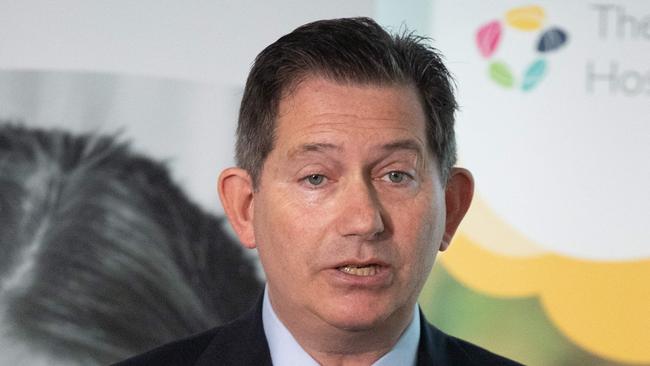‘No excuse for our failure’, says UNSW vice-chancellor Ian Jacobs over tweet removal
UNSW vice-chancellor has apologised for his uni’s decision to delete a tweet which publicised a call for UN action on the crackdown on freedoms in Hong Kong.

UNSW vice-chancellor Ian Jacobs has apologised for his university’s decision at the weekend to give in to Chinese protests and delete a tweet which publicised a call for UN action on the crackdown on freedoms in Hong Kong.
In an email to staff on Wednesday, Professor Jacobs said there was “no excuse for our failure” to follow the university’s freedom of speech policy. “The tweet should not have been removed,’’ he wrote. “I apologise for this mistake and reaffirm unequivocally our previous commitment to freedom of expression and academic freedom.’’
Read next: Uni pulls China article | UNSW stumbles over free speech | Melb Uni cuts 450 jobs | In face of crisis, unis stand up | Hong Kong students rush for visas |
The tweet, from the university’s official @UNSW account, publicised an article published on the university’s website in which UNSW adjunct law academic Elaine Pearson called for the international community to put pressure on China to end human rights infringements in Hong Kong.
The university also took down, but later reinstated, the article quoting Ms Pearson, after Chinese social media protests and a story in state-owned newspaper Global Times accusing UNSW of bringing shame to Chinese students.
In his apology, Professor Jacobs reaffirmed the university’s freedom of speech policy: “We will not restrict the right of staff, students or others to express their views however challenging or controversial, as long as they remain within the legal constraints of Australia.”
But he said the university had a policy of not taking political positions and the tweet was removed as “it appeared to represent a UNSW view, rather than the view of an individual”.
In future, UNSW will state on its social media accounts that the posting of material does not amount to endorsement.
Ms Pearson, who is also the Australian director of Human Rights Watch, said she appreciated the university’s apology for deleting the tweet and was glad Professor Jacobs had “affirmed the importance of freedom of expression”.
However, she said the policy appeared to be arbitrarily applied because similar tweets about other academics’ views had not been removed.
Ms Pearson said she hoped the apology would also be sent to UNSW students and be posted on the university’s website. She urged the university to host a public forum to discuss freedom of expression in universities, particularly so that international students could see how it was applied in the Australian context.




To join the conversation, please log in. Don't have an account? Register
Join the conversation, you are commenting as Logout